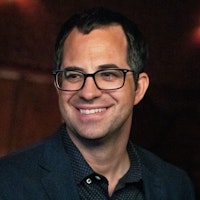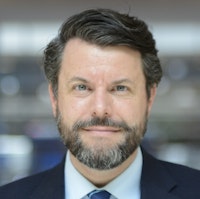
Groups that have greater psychological safety tend to perform better because they create a safe space for all kinds of people to speak up.
Show Notes
Though it can sometimes feel like conflict and discord is human nature, our brains are actually predisposed to forming groups and working together. In our individualistic society, we may think our minds stop at our skulls, but when people come together and connect effectively, they actually think in different ways, and they all become smarter and healthier together. Science writer Annie Murphy Paul, the author of “The Extended Mind: The Power of Thinking Outside the Brain,” joins NYU psychology professor Jay Van Bavel for a participatory conversation about uniting people to solve problems and work towards common goals. Again and again, research demonstrates the power of groups, and the panelists help us translate these findings into practical tips for encouraging people to collaborate functionally. New Yorker writer Charles Duhigg moderates the conversation and takes questions from the audience.
Explore
Related episodes


Does it feel like the quality of our national discourse has gone down in the last several years? You’re not the only one who’s noticed. It’s not individuals who have gotten stupider, says NYU social psychologist Jonathan Haidt, but it’s our collective intelligence that’s suffering. Institutions aren’t getting as much done, and leaders are making rash decisions under the pr...


So much of adult life is about learning the rules and then using those rules to navigate the world. We become certain that we know what we know — that we’re right, and we’re safer and more secure that way. But certainty, argues neuroscientist Beau Lotto, might actually be one of society’s biggest sources of emotional and physical unwellness. Certainty causes us to have les...


People often talk about maintaining their physical health but brain health is an afterthought. It turns out brain fitness at any age heightens and protects brain function and can even prevent brain disease. Sanjay Gupta, author of Keep Sharp: Build a Better Brain at Any Age, Maria Shriver, founder of the Women’s Alzheimer’s Movement, and Natalie Morales, West Coast anchor...


Are we experiencing a “crisis of connection"?” Fifty-four percent of American adults report that not a single person knows them well. Our political and social divisions are at the forefront of public life right now, and distrust is widespread. New York Times columnist David Brooks is on a mission to spread the skills of deep listening and engaged conversation, which lead t...


For many people, the COVID-19 pandemic lockdown became an unexpected opportunity to take stock of our relationships. Some friendships deepened and transformed, some slipped away, and many social circles shrank. Which isn’t always a bad thing.









